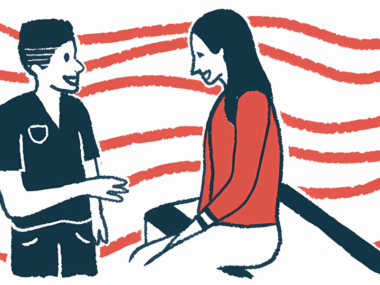Caregivers: Being a ‘care partner’ for someone is not a burden
Focusing on 'burden' reduces care partner support to 'burden reduction'
Written by |

Being a caregiver for someone with Parkinson’s disease can be difficult, but for family members, providing care is not a burden, it’s a partnership, an opportunity to express their love.
That’s according to interviews with 16 current and former Parkinson’s care partners. The findings were published in the American Journal of Hospice and Palliative Medicine in the study, “Parkinson’s Disease Carepartners’ Perceptions of the Challenges and Rewards of Caregiving.
People with Parkinson’s disease often need help with tasks on a day-to-day basis and family members often take on a caregiving role. Research has explored the so-called “caregiver burden” — that is, how caring for someone with Parkinson’s can have negative effects on the caregiver.
In this study, a team of scientists in the U.S. suggest that focusing only on the burden of caregiving misses key aspects of the caregiver experience. Supporting caregivers requires understanding their perceptions, both negative and positive, the researchers said.
“A singular focus on ‘caregiver burden’ and a lack of knowledge of care partners’ perceptions of [Parkinson’s] caregiving can limit care partner support to only burden reduction, which may not always be possible given the progressive nature of the disease,” wrote the scientists, who interviewed 16 caregivers to better understand their perspectives. Fourteen were spouses of someone with Parkinson’s, one was a sibling, and one was an adult child.
Not a ‘burden’
Consistent with research on the “caregiver burden,” a theme that emerged from the interviews is that being a caregiver is hard. The unpredictability of Parkinson’s and the grief of grappling with how the disease causes progressive losses were noted as especially trying.
“It was suffering to see him in that state, to see our daughter, um, grieving, you know, the loss of her dad … And then to see him, a man, just go from such a vibrant person to this man who needed somebody to take care of everything in his life,” said Sue, the wife of a Parkinson’s patient.
“I tried to find a solution at every step for the things that he had issues with … But it was just never quite enough … it was just always trying to keep up with the things that were happening,” said Jill, the daughter of a patient.
Despite the difficulties, the caregivers pushed back at the idea that caring is a burden. They described it as a partnership and a way to express their love for their family member.
Ben, whose wife had Parkinson’s, said, “Was it burden? No, not really. It was — it was … a labor of love … I did all this because I loved her. No other reason.”
“It’s a partnership … [because] we work together on … what her therapy should be, and … in everything … we do, we just, we make the decision … together,” said Bill, whose wife has Parkinson’s.
Many of those interviewed said they prefer the term “care partner” over “caregiver.”
“‘Care partner’ strikes me as being probably the truest meaning because we are a partner. You know, we’re partners of all aspects of life,” said Jane, the wife of a Parkinson’s patient. “So, the care is just another aspect of it.”
While caring for someone with Parkinson’s can be stressful, it can also be an opportunity for personal growth, connection, and moments of joy, they said.
“There are more positive than negative … aspects to [caregiving],” Jane said. ” … when … whatever I can do to make him comfortable or even happy with the food that he eats.”
“I just know that I’m a better person for it,” Ben said.
“There is joy … I think it just comes in moments … that are unexpected and good,” said Doug, whose wife has Parkinson’s. “For instance … [nine] weeks ago [my wife] sat up in bed, which she hadn’t done in weeks. She opened her eyes and smiled at me. And that’s joyful. And I said, ‘Well, hello, beautiful.’ There’s a moment of joy.”


